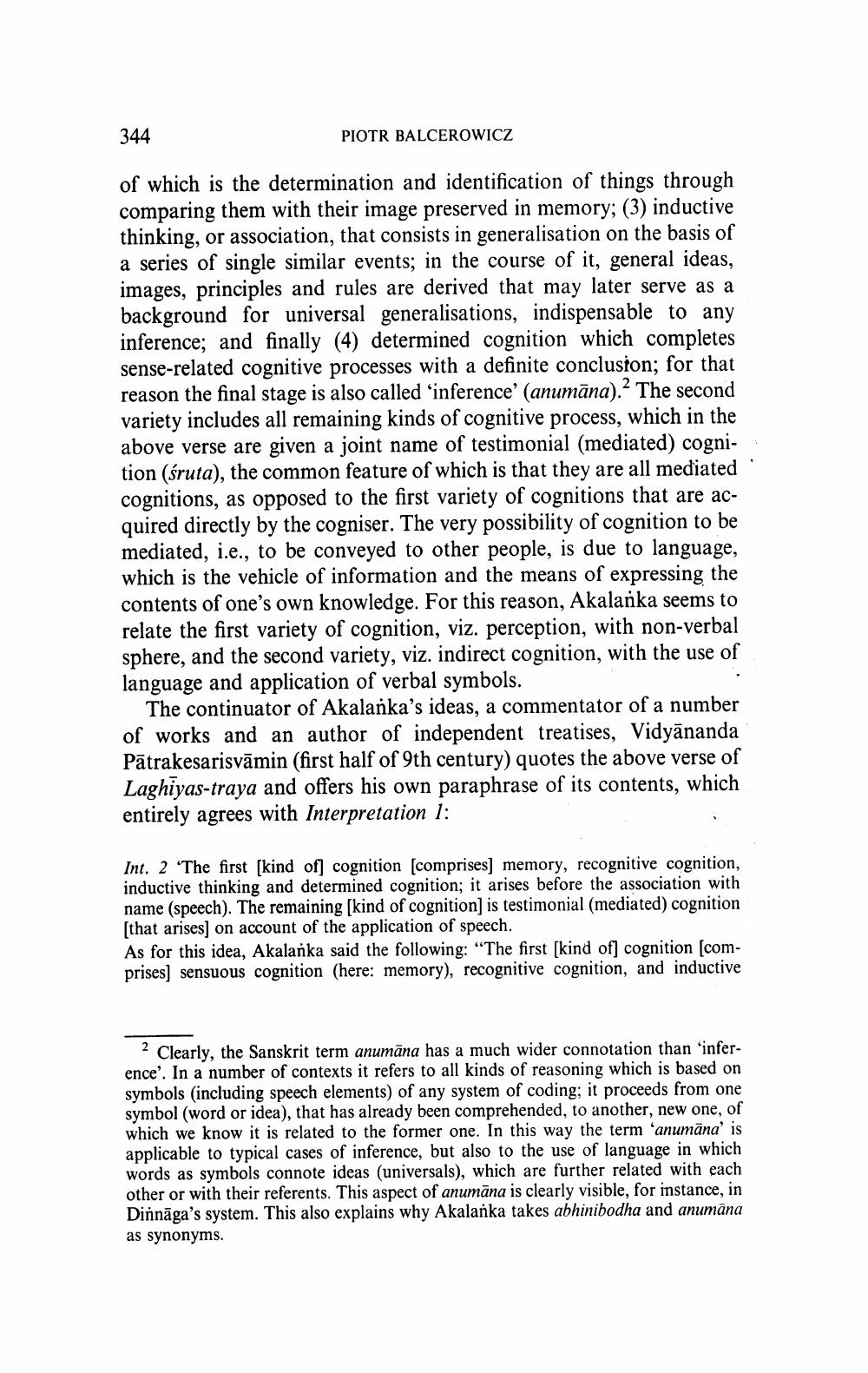Book Title: Pramanas And Language Dispute Between Dinnaga Dharmakirti And Akalanka Author(s): Piotr Balcerowicz Publisher: Piotr Balcerowicz View full book textPage 2
________________ 344 of which is the determination and identification of things through comparing them with their image preserved in memory; (3) inductive thinking, or association, that consists in generalisation on the basis of a series of single similar events; in the course of it, general ideas, images, principles and rules are derived that may later serve as a background for universal generalisations, indispensable to any inference; and finally (4) determined cognition which completes sense-related cognitive processes with a definite conclusion; for that reason the final stage is also called 'inference' (anumāna).2 The second variety includes all remaining kinds of cognitive process, which in the above verse are given a joint name of testimonial (mediated) cognition (śruta), the common feature of which is that they are all mediated cognitions, as opposed to the first variety of cognitions that are acquired directly by the cogniser. The very possibility of cognition to be mediated, i.e., to be conveyed to other people, is due to language, which is the vehicle of information and the means of expressing the contents of one's own knowledge. For this reason, Akalanka seems to relate the first variety of cognition, viz. perception, with non-verbal sphere, and the second variety, viz. indirect cognition, with the use of language and application of verbal symbols. The continuator of Akalanka's ideas, a commentator of a number of works and an author of independent treatises, Vidyananda Pātrakesarisvāmin (first half of 9th century) quotes the above verse of Laghiyas-traya and offers his own paraphrase of its contents, which entirely agrees with Interpretation 1: PIOTR BALCEROWICZ Int. 2 The first [kind of] cognition [comprises] memory, recognitive cognition, inductive thinking and determined cognition; it arises before the association with name (speech). The remaining [kind of cognition] is testimonial (mediated) cognition [that arises] on account of the application of speech. As for this idea, Akalanka said the following: "The first [kind of] cognition [comprises] sensuous cognition (here: memory), recognitive cognition, and inductive 2 Clearly, the Sanskrit term anumana has a much wider connotation than 'inference'. In a number of contexts it refers to all kinds of reasoning which is based on symbols (including speech elements) of any system of coding; it proceeds from one symbol (word or idea), that has already been comprehended, to another, new one, of which we know it is related to the former one. In this way the term 'anumana' is applicable to typical cases of inference, but also to the use of language in which words as symbols connote ideas (universals), which are further related with each other or with their referents. This aspect of anumana is clearly visible, for instance, in Dinnaga's system. This also explains why Akalanka takes abhinibodha and anumana as synonyms.Page Navigation
1 2 3 4 5 6 7 8 9 10 11 12 13 14 15 16 17 18 19 20 21 22 ... 58
